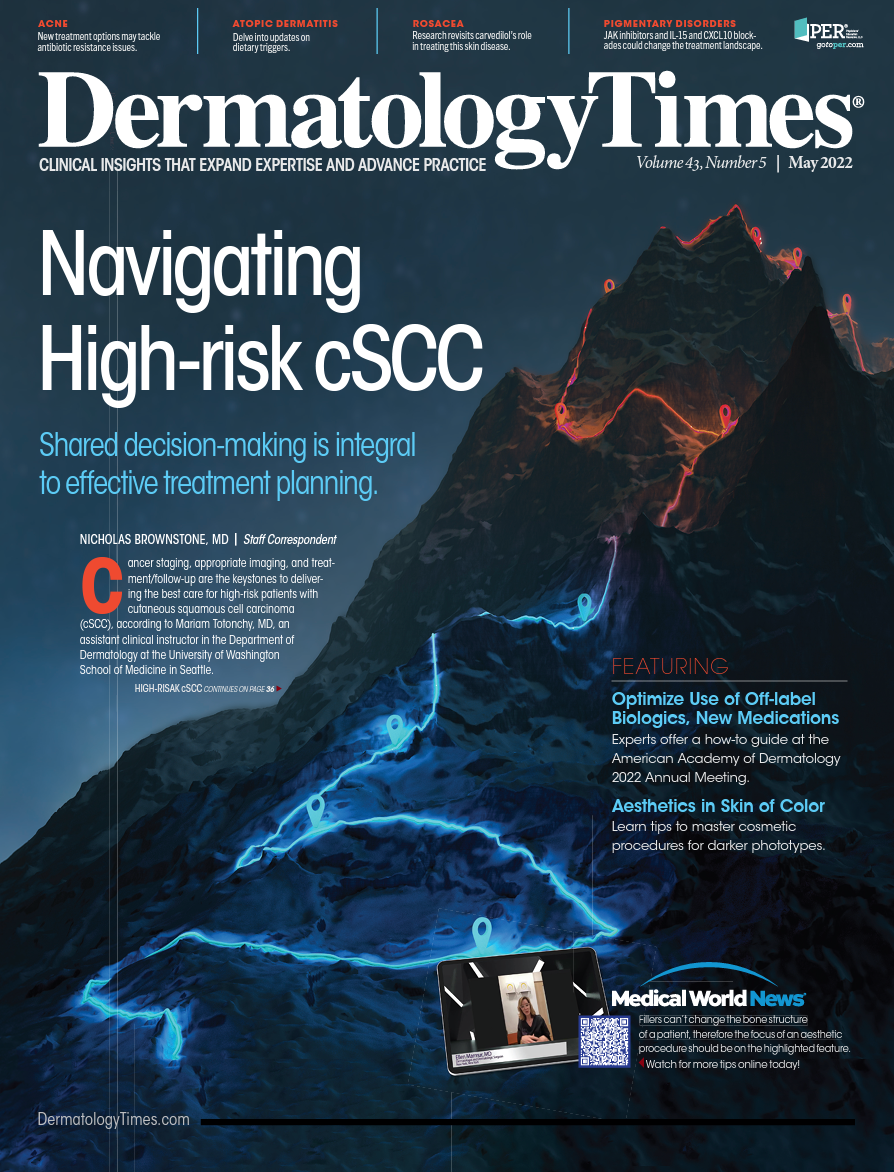- General Dermatology
- Eczema
- Alopecia
- Aesthetics
- Vitiligo
- COVID-19
- Actinic Keratosis
- Precision Medicine and Biologics
- Rare Disease
- Wound Care
- Rosacea
- Psoriasis
- Psoriatic Arthritis
- Atopic Dermatitis
- Melasma
- NP and PA
- Skin Cancer
- Hidradenitis Suppurativa
- Drug Watch
- Pigmentary Disorders
- Acne
- Pediatric Dermatology
- Practice Management
CME Credits, Drug Companies, and Freedom of Speech
“Dermatologists are not in violation of FDA statutes for prescribing the off-label use of prescription drugs.” See what David J. Goldberg is discussing in this month's Legal Eagle.
You are a member of your local dermatologic society and attend monthly meetings to obtain continuing medical education (CME) credits. To cover the meeting costs and encourage attendance, the society holds these events, which are financed by a prominent drug company. The food is excellent, and the lecture is stimulating.
At the meeting, the drug company provides JAMA Dermatology articles documenting the off-label use of one of its prescription pharmaceutical agents. You read the article, obtain your credits, and begin prescribing the off-label medication. Is the drug company in violation of FDA rulings? Are your actions acceptable?
The FDA derives its authority to regulate various aspects of the pharmaceutical industry from the Food, Drug, and Cosmetic Act of 1938, section 301 of title 21 of the US Code. To distribute a prescription drug in interstate commerce, the manufacturer is required to demonstrate that the drug is both safe and effective for each of its intended uses.
As part of the approval process, the FDA also reviews the proposed labeling, which includes all claims about the drug’s risks and benefits. Labeling is a term of art that encompasses all written, printed, and graphic materials that are upon any drug or any of its containers or wrappers or that accompany the drug.
The most obvious form of labeling is the package insert, but the term also has been construed to include nearly every form of drug company promotional activity, including booklets, mailing pieces, bulletins, and all literature that supplements, explains, or is textually related to the product. The FDA will approve the company’s new drug application only if the labeling conforms to the approved uses.
Physicians are not held to the same standard as the manufacturers. Once a drug has been FDA approved for marketing for any use, the actual prescription choices are left to the physician’s discretion. Dermatologists’ ability to prescribe off label is not in dispute and is appropriate in the context of the physician-patient relationship.
Because off-label uses are presently an accepted aspect of a dermatologist’s prescribing regimen, the open dissemination of scientific and medical information regarding these treatments is of great import. The FDA acknowledges that physicians need reliable and up-to-date information concerning off-label uses and recognizes that the varied sources include CME lectures and seminars. The FDA specifically recognizes that the need for reliable data is particularly acute in the off-label treatment arena because the primary source of information usually available to physicians—the FDA-approved label—is absent.
In 1996, the FDA issued a set of guidelines concerning the distribution of enduring materials, which include textbook excerpts and article reprints from medical and scientific journals. These guidelines restrict manufacturer distribution of enduring materials when the publications address off-label uses for the company’s previously approved products.
However, 20 years ago, a challenge to the guidelines was initiated by the Washington Legal Foundation (WLF), a nonprofit public interest law and policy center that defends the rights of individuals and businesses to go about their affairs without undue influence from government regulators.
In Washington Legal Foundation v Friedman—the defendants were Michael A. Friedman, who was acting commissioner of the FDA, and Donna Shalala, then-secretary of the US Department of Health and Human Services—WLF contended that journal articles, as scientific and academic speech, are entitled to the highest level of First Amendment free speech protection, so there should be no FDA restrictions on their dissemination. However, the FDA claimed that journal articles represent commercial speech, which is not as strictly protected by the First Amendment as noncommercial speech is.
The US District Court for the District of Columbia, in analyzing the litigation, noted that the distribution of enduring materials and sponsorship of CME seminars does constitute free speech and therefore is entitled to First Amendment protection.
The court evaluated whether the FDA’s ban on the manufacturer’s distribution of off-label peer-reviewed articles was appropriate. The court regarded the absolute ban to be more restrictive than necessary. All that should be required is “full, complete, and unambiguous disclosure by the manufacturer,” the court wrote.
Such disclosure—advising physicians that the FDA has not approved a particular use of the drug—avoids dissemination of any potentially misleading information. This requirement still would lead manufacturers to seek FDA labeling approval to allow broader distribution of the currently off-label drug. The court noted that in the balancing act between free speech and restriction of First Amendment rights, it is always better to allow free speech.
The court would have no difficulty with the distribution of off-label journal articles as long as the drug manufacturer provides full disclosure. Finally, dermatologists are not in violation of FDA statutes for prescribing the off-label use of prescription drugs.

